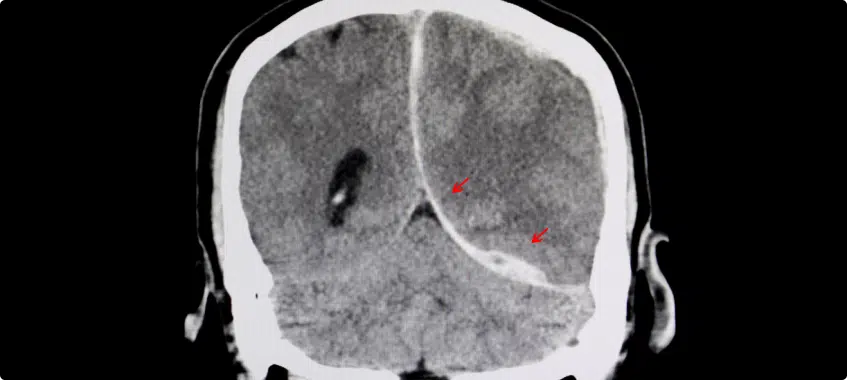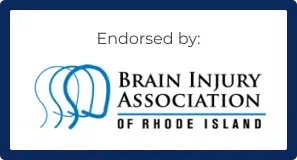Traumatic Brain Injury Recovery
Although recovery from a traumatic brain injury (TBI) can be challenging, it’s possible. Some patients fully recover, and many others can function independently after their injuries. Rehabilitation is essential for the best possible outcomes and involves different types of therapy. TBI patients must stay dedicated to their recovery plan and remember that there’s a reason for hope.

After a traumatic brain injury (TBI), the process of recovery begins. During the period following the injury, doctors generally focus on medical and surgical treatments designed to repair as much of the damage as possible and minimize the extent of the brain injury. Once the patient has stabilized, they can begin the process of rehabilitation.
The recovery process is different for every person with a TBI. The specifics of your brain injury, including its severity and location, will influence your recovery journey. Your age and overall medical condition can also have an impact.
Having realistic expectations for recovery is important, but it’s equally important to stay motivated and focused on your goals. While it’s impossible to know the outcome ahead of time, patients who dedicate themselves to rehabilitation will almost always have better results than those who give up. Patients with TBI often get better over time, so it’s important to stay the course with your treatment plan.
What Is A Tbi Rehabilitation Program?
Rehabilitation, often known simply as “rehab,” is designed to help you regain as much function as possible and learn skills to help you navigate your life after a traumatic brain injury.
In TBI rehab, you’ll undergo different types of therapy from a team of health care professionals. TBI rehab can take place in a variety of settings.
Inpatient Rehab
Inpatient rehab is rehabilitation provided in a rehab center that serves as the patient’s temporary residence. Staying at a rehab center allows you to receive help with your daily tasks while you recover. It also makes it easier and more convenient for you to access the specialists you need.
Furthermore, an inpatient center allows access to more intensive therapy, with many patients attending multiple therapy sessions daily. Because patients at an inpatient center are monitored, this may also be a safer option.
Outpatient Rehab
People who attend outpatient rehab sessions, on the other hand, live at home or with a relative or friend. You may attend rehab appointments as needed, or therapists may come to your home to work with you. People often feel more comfortable at home and prefer to recover in a familiar environment. Outpatient rehab is also generally less costly than inpatient rehab.
Keep in mind that if you’re living at home during your rehab, you’ll likely need a family member, close friend, or hired caregiver to help you with your daily tasks. You may also need to arrange transportation to and from your therapy appointments, which can be challenging.
Home therapy appointments may be more convenient, but they are generally offered only a few times a week. This may not be a viable solution for people who need more intensive therapy after their TBI.
Independent Living & Assisted Living Facilities
If a patient cannot navigate the logistics of living at home during rehab but doesn’t need inpatient care, an independent living or assisted living facility may be an option.
You will live in your own space at the facility and attend your rehab sessions there. You may also have help with day-to-day tasks, although you won’t be monitored as closely as if you were in an inpatient setting. TBI patients stay in such a facility for a few weeks after being discharged from the hospital or continue living there for longer.
How to Choose the Best TBI Rehab Option
The care team and patient choose the location of the TBI rehab program. If your TBI is more severe, inpatient rehab may be recommended, as it may not be safe for you to be at home. If you live alone, you may prefer inpatient rehab or an assisted living facility because you’ll need someone to care for you during your recovery.
If your TBI is less severe and you have a family member at home to help you, the care team may feel that outpatient rehab is appropriate. There are also cases where either is an option, and the patient’s preference is taken into account.
How Do I Prepare For TBI Rehab?
The best thing you can do to prepare for rehabilitation after a traumatic brain injury is to keep a positive mindset.
During TBI rehab, you’ll need to put in a lot of work, and progress can sometimes feel slow. Patients who stay focused on their goals and maintain motivation are more likely to sustain the effort required to get the best possible outcomes from rehab.
TBI rehab can begin as soon as the patient and their care team decide that the patient is ready. In fact, of the 66 respondents in a 2019 anonymous survey — all of whom were members of the Neurocritical Care Society and the American Congress of Rehabilitation Medicine — 98 percent recommended rehabilitative care while patients were in the ICU.
Once a patient is breathing independently, and their blood pressure and the pressure inside their skull are stable, the patient may be cleared to start rehab. Together, the patient and care team will decide when to begin.

What Happens During TBI Rehab?
Traumatic brain injury rehab programs typically include the following therapies:
- Physical therapy. PT is focused on the skills needed for moving around the environment and generally works on muscle strength, balance, and coordination. If you need assistive devices, such as a cane, walker, or wheelchair, your physical therapist can teach you to use these devices.
- Occupational therapy. OT focuses on the skills needed for the activities of daily living, such as preparing meals, getting dressed, and taking showers or baths. During occupational therapy sessions, you may also work on fine motor skills, such as handwriting.
- Speech therapy. Speech therapy helps with improving your ability to communicate verbally. Your speech therapist can determine whether assistive communication devices would be helpful for you after your TBI. Speech therapists also evaluate a patient’s ability to swallow safely and may sometimes recommend changes in diet to accommodate a patient’s needs.
Patients may also benefit from other types of therapy.
- Psychotherapy. This may be useful for managing conditions like depression or anxiety. It can also help patients to learn new patterns of behavior, helping them to break any unhealthy behavioral patterns that may have developed after TBI.
- Cognitive therapy. This focuses on helping patients develop cognitive skills that may have been affected by TBI, such as memory, focus, and decision-making.
- Recreational therapy. This is a form of therapy that helps patients do things that they enjoy. Many patients feel isolated after a TBI, and depression and anxiety are unfortunately common. Recreational therapy may improve a patient’s quality of life and help them reintegrate into the community.
- Vocational counseling. This can help people who want to return to work after their TBI. A vocational counselor can find work opportunities that are appropriate for your situation and help you deal with any challenges in the workplace that arise from your TBI.
- Support groups. These allow TBI survivors to meet others who have also been affected by a TBI, which decreases feelings of isolation. This can also be a great way for them to learn about resources and get advice from others who have been through TBI recovery.
The specific rehab program for each patient is personalized. Based on the effects of your particular injury and your desires and goals, your TBI rehab program will be adjusted to meet your needs.
If you’re finding that your rehab program isn’t meeting your needs for any reason, you should talk with your care team to ask if your program can be changed. Rehab works best when it’s considered a partnership between the patient and the care team, and your team wants to hear how things are truly going for you.
What Are The Risks Associated With TBI Rehab?
In general, no serious risks are associated with rehabilitation after a TBI. You and your care team will work closely for days, weeks, or even months following your traumatic brain injury, and they will ensure that every protocol is followed.
Certain parts of rehab, such as physical or occupational therapy, may cause existing symptoms to worsen or new injuries to develop. However, as long as you choose a reputable care team and communicate any changes in how you feel, there is no reason to believe your rehabilitation will not be successful.

Can You Fully Recover From A TBI?
It’s impossible to predict the specific outcome for a TBI patient. Although brain cells that have been lost do not grow back, the brain is surprisingly flexible. Other brain regions may be able to take over the functions of these lost cells. The brain can also learn new ways of performing old functions.
In 2021, a study published in JAMA Neurology followed 484 patients with moderate to severe TBIs. After one year, about three-quarters of those with a moderate TBI could function independently at home for at least eight hours per day. Half of those with severe TBI achieved this level of function. And of the patients who achieved complete recovery, 12.5 percent had sustained a severe TBI and 19 percent had sustained a moderate TBI.
A study published in 2019 in Frontiers in Neurology looked at the longer-term outcomes for more than 500 patients with severe TBI. After eight years:
- 33.7% had made a good recovery.
- 46.5% were moderately disabled.
- 19.8% were severely disabled.
- 48.7% of patients were employed.
Studies such as these demonstrate that a good outcome after a TBI is achievable, and patients can fully recover even after a major injury.
How Can Family Members Help With Tbi Recovery?
During the process of TBI recovery, the support of family members and friends is crucial. Many TBI patients experience mental and emotional struggles after their injury, and it can be easy for them to lose hope for the future. Support will help them stay positive and remain motivated for their rehab which can help achieve the best possible outcome.
It can be challenging to deal with a loved one’s TBI, especially for caregivers. If you’re helping a family member or friend who has experienced a TBI, it’s important that you also seek the support that you need.
Your ability to help your loved one depends on your own needs being met. Prioritize your health. Make sure you get enough sleep, eat well, and take time for yourself to rest and recover. Rather than choosing just one caregiver who always shoulders the burden, it’s better to share the responsibility with a few family members or friends so each person can take breaks.
There are many ways for family members to help their loved ones with a TBI:
- Understand that the period just after coming home is often difficult for a person with a TBI. They may feel increased frustration at this time.
- Carefully organize your home to make it easier for the person with a TBI to find what they need. Assistive devices, such as kitchen timers or medication dispensers, may be helpful for them.
- Try to establish a daily structure. Allow the person to make choices, but don’t overwhelm them with too many options; making decisions can be difficult after suffering a traumatic brain injury. Having a clear structure for each day can reduce the number of decisions that a person with TBI needs to make.
- Watch your loved one for any unusual signs and communicate these with their care team if you notice anything. For example, certain signs could indicate seizures, like periods of staring off into space or complaining of unusual smells that aren’t apparent to others in the room.
- Spend quality time with your loved one, and let them know that you value them. Also, understand that they’ll need plenty of time to rest, so you’ll want to give them enough alone time.
- Encourage your loved one to be diligent about attending all therapy appointments and completing their therapy exercises. Remind them that this will help them get better. When you see them making progress, let them know and encourage them to keep going.
- Consider going to a support group for caregivers of people with a traumatic brain injury. This can be a great way to feel more connected and supported, get advice, and share resources with others in a similar situation.
Talk with your loved one’s TBI treatment team about how you can best help them. Each traumatic brain injury survivor is different and has different needs during their recovery.
TBI Rehabilitation Programs In Rhode Island
There are various programs offered in Rhode Island that provide rehabilitation for TBI patients. Options may include:
- Rehabilitation Hospital of Rhode Island. An inpatient rehab facility located in North Smithfield.
- Sargent Rehabilitation Center. An outpatient center located in Warwick.
- Southern New England Rehabilitation Center. An inpatient center located in North Providence.
- Chief Judge Robert F. Arrigan Rehabilitation Center. An outpatient program that focuses on providing rehab for those who were injured at work. If you’re receiving workers’ compensation for your injury, you may be eligible for free treatment at this facility.
Other TBI rehab facilities are available, including many located in hospitals throughout the state. Your choice of rehab facility may be constrained by financial considerations, such as which are covered under your insurance plan. Talk with your care team about which facilities would be options for you and ask them to help you find the best fit for you or your loved one recovering from a traumatic brain injury.
From their office in East Providence, the Brain Injury Association of Rhode Island connects patients and caregivers to beneficial resources. This is a great place to start your search for support.
Marasco & Nesselbush, LLP is a premier personal injury law firm and a proud partner of the Brain Injury Association of Rhode Island. Contact us today if you or a loved one suffered a traumatic brain injury due to someone else’s negligence — whether in a car accident, a slip-and-fall on public or private premises, a case of medical malpractice, or any other situation where someone breached their duty of care.
We will fight for you to recover the compensation you deserve.


$4,500,000
Recovered for a client who sustained a traumatic brain injury in a car crash.
DO I HAVE A CASE?
If you think you may have a TBI case, contact us now for a FREE consultation